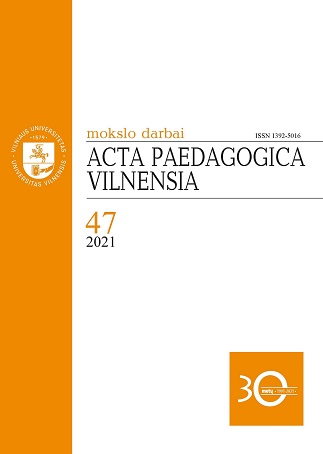Knowledge Valorisation in Doctoral Studies in Latvia: Entrepreneurship and the Development of Research Competencies in the Study Process
Knowledge Valorisation in Doctoral Studies in Latvia: Entrepreneurship and the Development of Research Competencies in the Study Process
Author(s): Agnese Slišāne, Gatis Lāma, Māra BernandeSubject(s): Higher Education , Sociology of Education
Published by: Vilniaus Universiteto Leidykla
Keywords: entrepreneurship competence; research competence; knowledge valorisation; doctoral students;
Summary/Abstract: The purpose of this paper is to analyse the self-assessment data of Latvian doctoral students relating to their entrepreneurship and research competencies and to explore how it correlates and what can be done to promote valorisation during the study process. An online survey using the QuestionPro platform was used to collect the data. The survey was fully completed by 43 doctoral students from various higher education institutions, and it consisted of 123 statements in which doctoral students assessed their competencies on a 7-point Likert scale. Five structured interviews were conducted in order to identify the supporting environment and other aspects that have an impact on the development of entrepreneurship and research competencies. The results of the research demonstrate a relatively low self-assessment of entrepreneurship competencies, which points to why doctoral students are unable to commercialise their knowledge. Unlike entrepreneurship competencies, research competencies can be considered as very high. According to the data, there is no clear correlation between entrepreneurship competence and research competence. The results also point to the fact that it is not sufficient to develop only one of the two competencies to ensure the valorisation of knowledge. For data to be fully representative, a higher number of respondents would have been desirable as well as a greater diversity of study programs represented, assuming that knowledge valorisation approaches and opportunities differ across sectors. Nonetheless, the results can be used for the development and implementation of the valorisation initiatives of higher education institutions.
Journal: Acta Paedagogica Vilnensia
- Issue Year: 2021
- Issue No: 47
- Page Range: 193-210
- Page Count: 18
- Language: English

